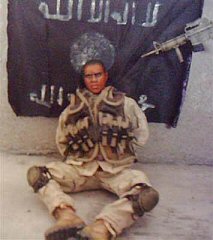It seems obvious to me, but maybe not to all, that the closer you are to death the fewer choices you have to avoid it.
If you can imagine a piece of film that shows all of the events that lead up to a persons death, then you could show a sliding scale measuring time left versus available escape choices.
I imagine that most people walk blinly into death because they are unaware of its presence, or they become aware of it too late to prevent it. Take for example someone who is on holiday, wanders into a non-tourist part of town, gets kidnapped and tortuered and eventually killed for being british/american. It feels like a very real possibility at the moment in the world! The choices they make will ultimately lead to their survival or their death, more so if they are not aware of the choices they are making and where they are headed.
At the beginning of their choice tree they can decide to go to a foreign place or not, home=safe away=danger. Once away from home they can decide to play it safe or go off exploring, if they choose to go exploring, then do they know where the dangerous parts are? do they know how foreign tourists are viewed by the locals?
If this person strays into an unfriendly area, are they aware of what is going on around them, or could they get ambushed, and kidnapped?
Once kidnapped are they equipped to get out of the kidnappers clutches, or are they an easy target?
If they are taken to a holding cell, can they be creative enough to escape, or will they sit and wait for rescue/release?
If there is a routine to their imprisonment, can they spot opportunities for breakout or overpowering the guards?
If they end up in a tied up position then to get out of this is nearly impossible and the captor has complete control over the life of the captive, at this stage only a miracle could save them, and depending upon the faith of the person they may well just pray and await a saviour or the grim reaper.
So although this is a very breif and uncomplicated example, probably not realistic at all, it does serve to illustrate that our choices take us down paths, so we must understand the consequences of our decisions. Failure to do so will wind us up in positions we didn't expect and may not be able to get out of.
If we wake up and realise at the point we are tied to a chair and our captor is weilding a knife by our necks, there's really no way out.
